
Auto insurance is insurance purchased for cars, trucks, and other road vehicles. Its primary use is to provide protection against physical damage and/or bodily injury resulting from traffic collisions and against liability that could also arise therefrom. It is a contract between you and the insurance company. You agree to pay the premium and the insurance company agrees to pay your losses as defined in your policy.
An auto insurance policy is comprised of six different kinds of coverage. Most states require you to buy some, but not all, of these coverages. If you're financing a car, your lender may also have requirements. Most auto policies are for six months to a year. Your insurance company should notify you by mail when it's time to renew the policy and to pay your premium.
Your basic policy should cover the following:
1) Bodily Injury Liability: This provides protection if the driver, policyholder, or the policyholder's family member causes bodily injury to someone else.
2) Property Damage Liability: If you or someone else permitted to drive your car damages others' property, this coverage will protect you. When you look for free auto insurance quotes, make sure you will be covered under the Property Damage Liability coverage.
3) Medical coverage: This pays for the cost of treating injuries, rehabilitation and sometimes lost wages and funeral expenses.
4) Collision coverage: This compensates for damage to the policy holder's car as a result of collision with another car. Even if you are at fault, this term will cover the cost of repair to your car minus the deductible. If you are not at fault, then your insurer will try to recover the cost from the other driver's insurer.
5) Comprehensive Coverage: Many of you may be asking yourselves "What is comprehensive auto insurance protection?". If you suffer a loss due to theft or a damage caused by something other than a collision, like a fire, explosion, earthquake, or windstorm, then this protects you.
6) Uninsured/Underinsured Motorist Coverage (UM/UIM): Individuals who buy cheap car insurance are often underinsured and do not have enough money to pay for losses if they are involved in an accident. If an uninsured, underinsured, or hit-and-run driver hits you or your family member, this term will reimburse the cost of your damages. You will also be protected if you are hit as a pedestrian.
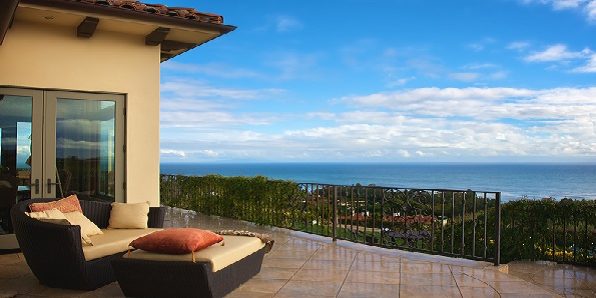
You surely must be proud of your home and would like to protect it. This is why you need a homeowners insurance policy. Such a policy not only protects your dwelling but also covers your personal property and provides you with personal liability coverage.
The four types of homeowners insurance coverage are:
A. Dwelling- typically covers your house, attached structures, fixtures in the house such as built-in appliances, plumbing, heating, permanently installed air conditioning systems and electrical wiring.
B. Other Structures- typically covers detached structures such as garages, storage sheds, and fixtures attached to the land including fences, driveways, sidewalks, patios and retaining walls. Detached structures used for business purposes are not covered under a personal homeowners insurance policy.
C. Personal Property- typically covers personal property including the contents of your home and other personal items owned by you or family members who live with you. This protection can be based on actual cash value or replacement cost. Some items may have coverage limits such as firearms, artwork, business property, electronic data, jewelry, and money. Extra coverage is usually available by adding endorsements to your policy.
D. Loss of Use- typically covers living expenses over and above your normal living expenses if you cannot live in your home while repairs are being made.
California Home Insurance Policies
California homeowner insurance policies differ by which losses are covered, which coverages you choose, and what type of residence you own. You choose which insurance policy is best for you, whether it's a comprehensive policy that cover losses such as fire, hail, smoke, falling objects, vandalism and theft of personal property, or whether it's a policy that covers only specified losses.
Your home is your biggest asset and you definitely want to protect it from any kind of harm. Purchasing homeowners insurance and the right policy is the best way to do so.

Umbrella insurance is a liability insurance policy that protects the assets and future income of the policyholder above and beyond the standard limits on their primary policies.
It is distinguished from excess insurance in that excess coverage goes into effect only when all underlying policies are totally exhausted, while umbrella is able to "drop down" to fill coverage gaps in underlying policies.The term "umbrella" refers to how the policy shields the insured's assets more broadly than primary coverage.
Typically, an umbrella policy is pure liability coverage over and above the coverage afforded by the regular policy and is sold in increments of one million dollars. The term "umbrella" is used because it covers liability claims from all policies underneath it, such as auto insurance and homeowners insurance policies. For example, if the insured carries an auto insurance policy with liability limits of $300,000 and a homeowners insurance policy with a limit of $200,000, then with a million dollar umbrella, the insured's limits become in effect, $1,300,000 on an auto liability claim and $1,200,000 on a homeowners liability claim.
Umbrella insurance provides broad insurance beyond traditional home and auto. It provides additional liability coverage above the limits of homeowner's, auto, and boat insurance policies.

When you have family members depending on your income, saving for the future of your loved ones is a good idea. Investing in life insurance will give you enough financial support to take care of the future of your loved ones when you are no longer around.
Life insurance is a contract between the policy owner and the insurer, where the insurer agrees to pay a designated beneficiary a sum of money upon the occurrence of the insured individual's or individuals' death or other event, such as terminal illness or critical illness. In return, the policy owner agrees to pay a stipulated amount (at regular intervals or in lump sums). A life insurance plan also makes provision for a cash value where a part of your premium is put into a savings account. Hence, while you invest for a secured future, you can make savings too.
What are the types of life insurance?
Term Life Insurance: This is also known as term assurance, this life insurance provides coverage at a fixed rate of payments for a limited period of time, the relevant term. After that period expires coverage at the previous rate of premiums is no longer guaranteed and the client must either forgo coverage or potentially obtain further coverage with different payments and/or conditions. If the insured dies during the term, the death benefit will be paid to the beneficiary. Term insurance is the least expensive way to purchase a substantial death benefit on a coverage amount per premium dollar basis over a specific period of time. Term insurance has no cash value. Many carriers offer term insurance with the option to convert it to a permanent policy.
Whole Life Insurance: This is one of the most common types of Permanent Life Insurance. This a life insurance policy that remains in force for the insured's whole life and requires (in most cases) premiums to be paid every year into the policy. There is no date of expiry like in a term life insurance and the death benefits will be received by the beneficiary mentioned in the policy only in the event of the death of the policy holder.
Universal Life Insurance: Universal life insurance is a flexible policy that provides security for you and your family.This is a type of permanent life insurance based on a cash value. That is, the policy is established with the insurer where premium payments above the cost of insurance are credited to the cash value. The cash value is credited each month with interest, and the policy is debited each month by a cost of insurance (COI) charge, and any other policy charges and fees which are drawn from the cash value if no premium payment is made that month. The interest credited to the account is determined by the insurer; sometimes it is pegged to a financial index such as a bond or other interest rate index.
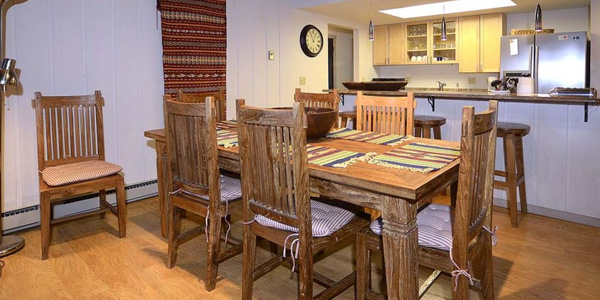
Condominium (Condo) insurance is a special insurance designed to fit the specific needs of condo owners. When you are a condo owner, not only do you own your individual condo, you also share ownership in the common areas and overall structure of your building.
If shared areas need upkeep and maintenance, your association will typically handle the expense through their insurance package. Although your association dues help pay for upkeep of the common areas, they do not typically cover your personal property within your own unit, or your liability if someone is injured on your property.
The condo insurance you buy covers your personal property, liability and those parts of the unit that are your responsibility. It may also protect you from certain assessments levied by the condo association. And you're covered for costs you incur over normal living expenses if you have to vacate your home due to a covered loss.
Condominium insurance is intended for bridging the gap between what is covered by your association policy and what is not.
Condo insurance protects you and your family against bodily injury, property damage claims, and litigation up to the limits you select. And if a visitor is injured on your property, or by you or a household member, the policy will pay covered medical expenses, up to the limits you select.

Renters insurance is a type of home insurance which protects the holder against the accidents, damages, and the losses that occur in a rented residence.
By purchasing renters insurance, your personal property is covered against losses from fire or smoke, lightning, vandalism, theft, explosion, windstorm and water damage (not including floods). Like homeowners insurance, renters insurance also covers your responsibility to other people injured at your home or elsewhere by you, a family member or your pet and pays legal defense costs if you are taken to court.
Renters insurance covers your additional living expenses if you are unable to live in your apartment because of a fire or other covered perils. Most policies will reimburse you the difference between your additional living expenses and your normal living expenses but still may set limits as to the amount they will pay.
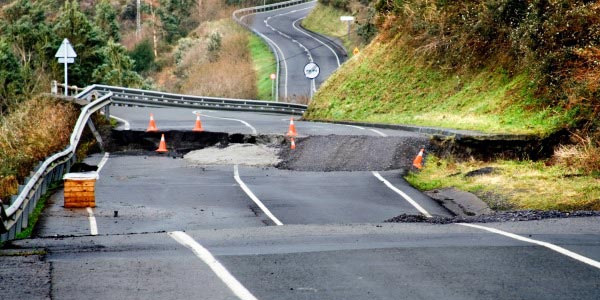
Earthquake insurance is a form of property insurance that pays the policyholder in the event of an earthquake that causes damage to the property. Most ordinary homeowners insurance policies do not cover earthquake loss.
Most earthquake insurance policies feature a high deductible, which makes this type of insurance useful if the entire home is destroyed, but not useful if the home is merely damaged. Rates depend on location and the probability of an earthquake.
Ideally, your earthquake insurance policy should cover the cost to replace or repair your damaged property. The following questions could help you decide whether earthquake insurance is right for you and how much coverage you should have:
Can you afford to replace your household possessions (such as sofas, TVs, furniture, clothing, etc) if they were destroyed in an earthquake? How much would they cost?
If you have to find temporary accommodations because you cannot live in your home after an earthquake, how much will you need to pay for those additional living expenses?
What would it cost to rebuild your home? Do you have assets to repair or rebuild your home after an earthquake?
Do you have a mortgage on your home? Can you afford to continue paying your loans while your home is being rebuilt?
These are some of the questions you should ask when considering purchasing earthquake insurance.

Dwelling Fire coverage is often selected for rental or non-owner occupancy (as an example, a homeowner who, for free, has arranged for a friend to use his home for an extended period).
Other situations that may call for use of dwelling fire coverage are lack of full-time occupancy (secondary or seasonal homes) and type of property (mobile homes and minimal value manufactured homes). Another very common situation that is handled by dwelling fire coverage is residences that are under construction.
Dwelling Coverage provides protection against such risks as fire and lightning, explosions, windstorms, hail, snow, damage from smoke, in some states - tornadoes and hurricanes, vandalism, freezing of plumbing and overflow from your plumbing, damage from vehicles, falling objects and, possibly, other damages stipulated in your policy.

You may think your all-terrain vehicle (ATV) is covered by your homeowners policy, but are you really protected? Most likely, your homeowners policy only covers your ATV if trouble occurs on your property; anywhere else and you'll be exposed.
What is included on an Off-Road Vehicle insurance policy?
Liability Coverage - This coverage, provides financial compensation to other people if you are liable for an accident.
Uninsured Coverage- Uninsured coverage protects you and your family financially from the loss of income and medical bills after an accident.
Physical Damage Coverage - Covers your off-road vehicle after a covered loss. Coverage can be on an agreed value or actual cash value basis
Trailer Coverage - Optional coverage to extends to your trailer.
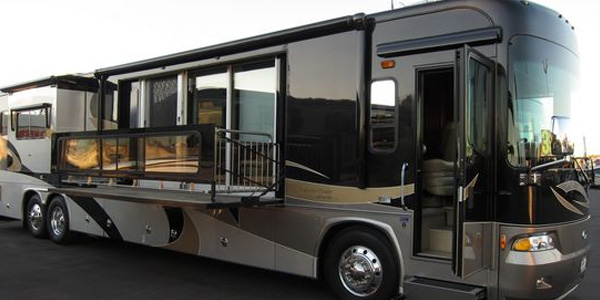
RV Insurance (Recreational Vehicle Insurance) is insurance for a motor vehicle used for recreational activities. The different types of RV insurance are: Motor Home Insurance, Travel Trailer Insurance and Camper Insurance.
A motor home is like a house on wheels. It is a vehicle designed to provide a temporary and movable living place. Travel Trailers and Campers are units towed by a land motor vehicle and designed for recreation and camping.
Unless you have a recreational vehicle insurance package, you could be in for a nightmare should you experience a loss with your RV. Your auto and homeowner's policies may not cover such items as appliances, plumbing or accessories. Without true Recreational Vehicle insurance, your emergency expenses incurred while traveling would undoubtedly come out of your own pocket. A typical travel trailer insurance policy from an auto carrier will include physical damage coverage only.

Dwelling fire coverage is often selected for rental or non-owner occupancy (as an example, a homeowner who, for free, has arranged for a friend to use his home for an extended period).
Flood Insurance denotes the specific insurance coverage against property loss due to flooding. To determine risk factors for specific properties, insurers will often refer to topographical maps that denote lowlands and floodplains that are susceptible to flooding.
Flood Insurance is one type of catastrophic coverage; insurance that covers the policyholder in the event of a natural disaster. Most homeowners policies do not include flood insurance as the location of their property makes it unnecessary. But many individuals do not realize that floods are not covered by their homeowners policy. Residents of areas that are particularly vulnerable to flooding are eligible to purchase federally backed flood insurance through the National Flood Insurance Program.

There are specific differences between auto insurance and motorcycle insurance. So if you own both a car and a motorcycle, your car insurance will not cover your bike. You will need a separate motorcycle insurance policy for that.
Motorcycle Insurance
Available Coverage Options for Motocycle Insurance
1) Bodily injury to someone else or property damage that you accidentally caused while riding your motorcycle.
2) Bodily injury to yourself because of an accident with an uninsured motorist.
3) Damage to your motorcycle caused by an accident.
4) Theft, fire, vandalism, and other losses even while your motorcycle is in storage.
5) Customization work, such as paint or upgraded components.
6) Attached side cars.

You may think your all-terrain vehicle (ATV) is covered by your homeowners policy, but are you really protected?
Watercraft are often significant investments and the right insurance policy can help protect your watercraft no matter where you are. What if you find out your watercraft has been stolen or maybe your watercraft was involved in an accident and wasn't repaired because you don't have watercraft insurance? Yes, every year several watercrafting accidents occur in America and most of it causes some kind of injury.
While you may be able to cover some of your personal watercraft exposure on your Homeowners Insurance policy, only a properly crafted personal watercraft insurance policy will provide you with the peace of mind that you will be completely protected in the event of an incident.
Following are some of the coverages available:
1) Liability
2) Uninsured Boater Coverage
3) Physical Damage
4) Medical Payments
5) Towing and Assistance
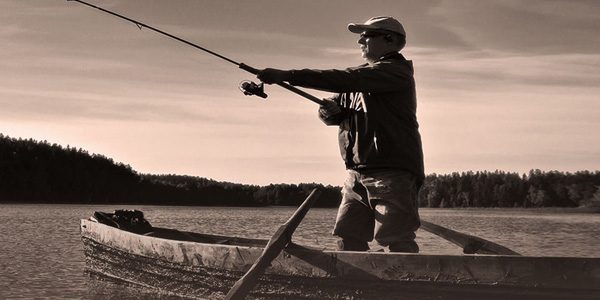
Long-Term Care is a variety of services which help meet both the medical and non-medical need of people who cannot care for themselves for long periods of time because of chronic illness or disability.
It is common for long-term care to provide custodial and non-skilled care, such as assisting with normal daily tasks like dressing, bathing, and using the bathroom. Increasingly, long-term care involves providing a level of medical care that requires the expertise of skilled practitioners to address the often multiple chronic conditions associated with older populations. Long-term care can be provided at home, in the community, in assisted living or in nursing homes. Long-term care is designed to cover the cost of services that may be needed beyond medical care and for a long period of time. Long term care can be expensive and having insurance can help when you need such care.